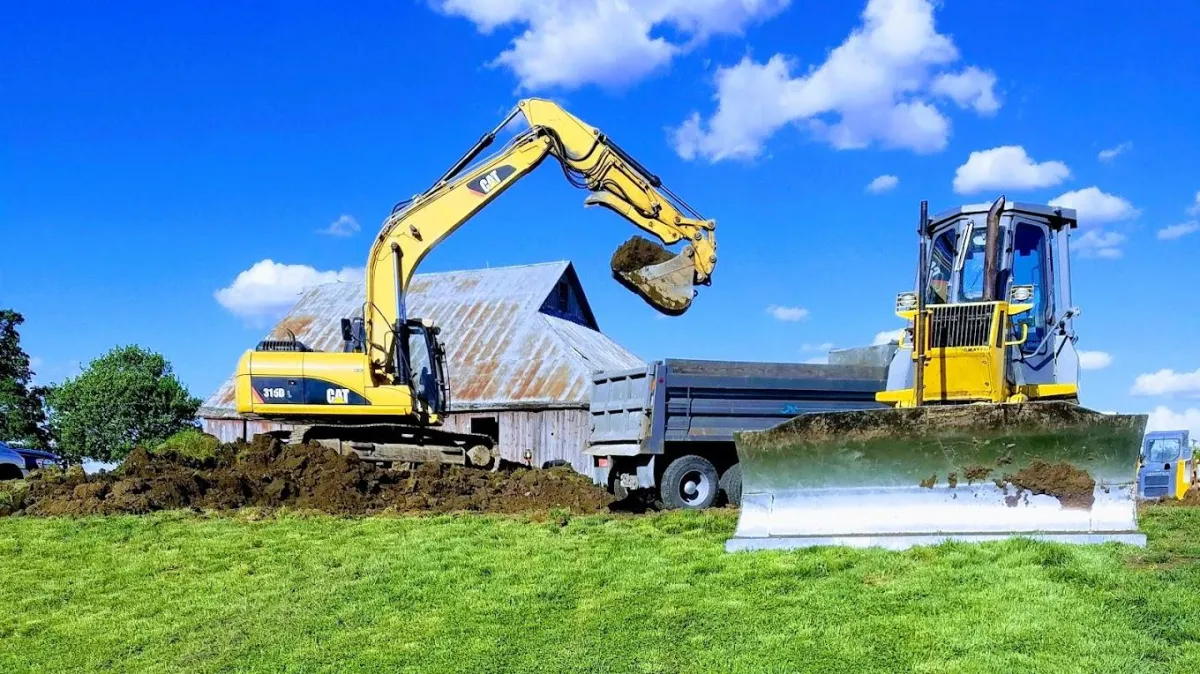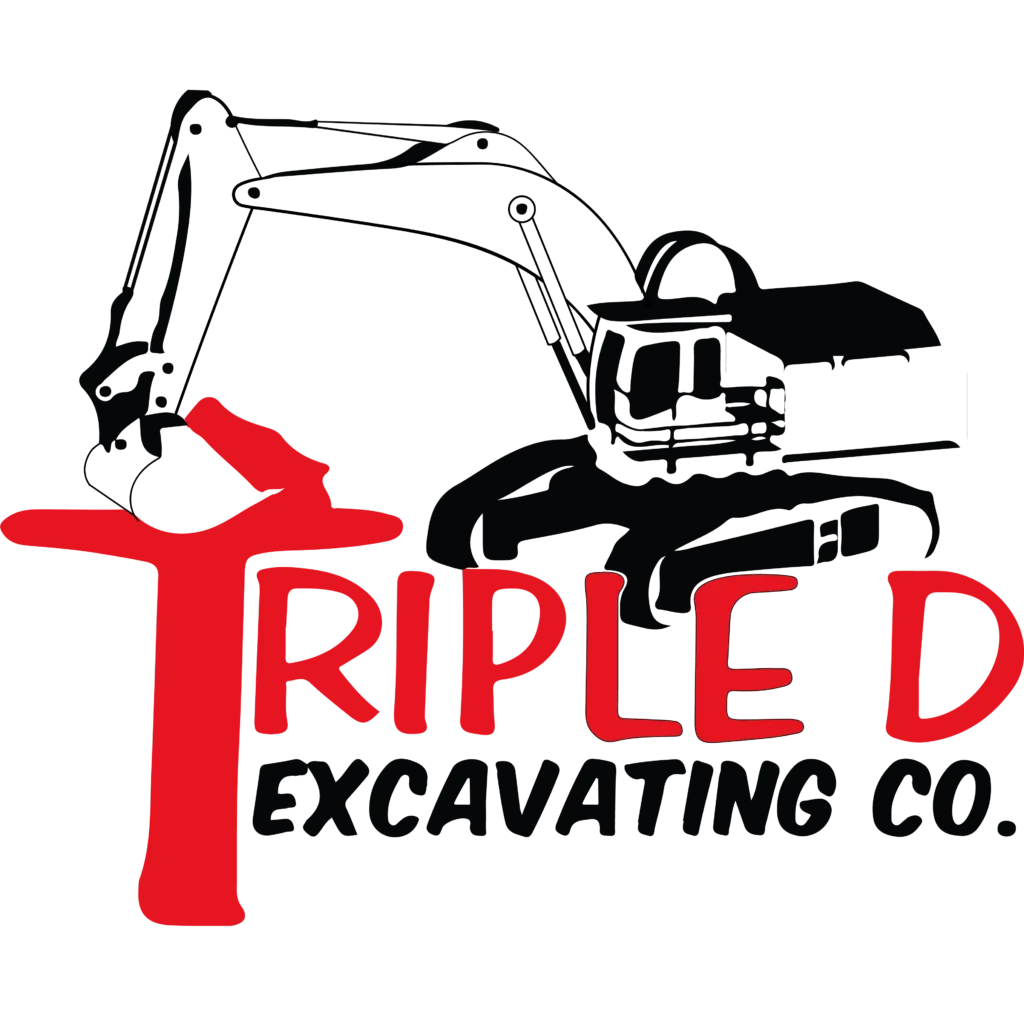Licensed, Bonded & Insured | Family Owned & Operated
049-012803 IL | IL Pumping License: 054-021753 | IA Pumping License: 12839
22 YRS. EXPERIENCE, FULL SITE PREP EXPERTS - HOW CAN WE HELP?

How Much Do Demolition Companies Near Rock Island County Charge? Avoid Overpaying
Demolition Costs – The Fear of the Unknown
You're staring at a building or home that needs to come down. Maybe it's an old house you just bought, a structure that's beyond repair, or an eyesore that’s been sitting for years. You know you need a professional to handle the job, but the big question looms: How much is this going to cost?
It’s frustrating, right? Demolition isn’t something you do every day, so you’re left guessing. The last thing you want is to get blindsided by hidden fees or regret hiring the wrong crew. We get it. At Triple D Excavating Co., we’ve worked with homeowners and businesses across Rock Island, Henry, Knox, Mercer, and Muscatine Counties, and we’ve seen too many people get hit with surprise costs. That’s why we’re pulling back the curtain on demolition pricing—so you know what to expect and how to avoid overpaying.
Breaking Down Demolition Costs in Rock Island County
Demolition costs vary widely, but here’s a general idea of what you can expect:
Small Residential Structures (Sheds, Garages, Small Homes) – $4,000 to $12,000
Medium-Sized Homes (1,200 to 2,000 sq. ft.) – $8,000 to $20,000
Larger Homes (2,000+ sq. ft.) – $15,000 to $30,000
Commercial Building Demolition – $25,000 and up, depending on size and materials
These numbers are ballpark figures. The final cost depends on several factors, which we’ll break down next.
What Affects Demolition Costs? Key Factors to Know
Understanding what drives demolition pricing can help you plan your budget wisely. Here are the biggest cost influencers:
1. Size and Materials of the Structure
Bigger buildings require more labor, heavier machinery, and more disposal costs. Materials also matter—brick, reinforced concrete, and steel structures cost more to tear down than wood-framed homes.
2. Permits and Regulations
In Rock Island County, most demolition projects require permits, which can cost anywhere from $50 to $500, depending on the city and project scope. You may also need environmental inspections, especially for older buildings that could contain asbestos or lead paint.
3. Location and Accessibility
Tearing down a house in a rural area? Costs might be lower. Need demolition in a tight urban lot with limited access? Expect to pay more due to the extra labor and equipment required to navigate the space.
4. Waste Disposal and Recycling Fees
Disposing of debris is a big chunk of your budget. Dumping fees, transportation costs, and recycling efforts all impact pricing. Some materials, like metal, can be salvaged to offset costs, but hazardous waste disposal drives prices up.
Hidden Costs That Can Wreck Your Budget
Demolition quotes don’t always tell the whole story. Here are common hidden costs to watch for:
1. Asbestos or Hazardous Material Removal
If your structure was built before 1980, there’s a chance it contains asbestos. Special removal procedures must be followed, adding anywhere from $2,000 to $10,000 to your demolition costs.
2. Utility Disconnections
Before demolition begins, water, sewer, gas, and electricity must be safely disconnected. If your utility company charges disconnection fees, expect an extra $500 to $3,000, depending on the property.
3. Foundation Removal and Site Preparation
Are you just tearing down the building, or do you need the foundation removed too? A full site cleanup and grading job can add another $2,000 to $8,000 to your project, depending on what’s needed next.
DIY vs. Hiring a Professional Demolition Crew: Which Actually Saves You Money?
You might be thinking: Can I just rent an excavator and do this myself? It’s tempting, but here’s the reality:
Renting the equipment alone can cost $3,000 to $6,000 per week.
You still need to handle permits, debris hauling, and site cleanup.
Without experience, you risk damaging underground utilities or neighboring properties (which could cost thousands in repairs!).
Liability—if someone gets hurt, you’re responsible.
Unless it’s a very small structure, hiring a professional is almost always the safer, more cost-effective choice.
How to Get the Best Price Without Sacrificing Quality
So how do you avoid getting overcharged or dealing with shady contractors? Here’s how to get the best deal without cutting corners:
1. Get Multiple Quotes (But Compare Apples to Apples)
Not all demolition quotes include the same services. Make sure each contractor’s estimate covers permits, waste disposal, and site cleanup so you can compare fairly.
2. Beware of Suspiciously Low Bids
If one company’s quote is drastically lower than the others, that’s a red flag. They may be cutting corners on safety, using unlicensed workers, or skipping proper waste disposal—leaving you liable.
3. Ask About Salvageable Materials
Some contractors will reduce costs if they can resell salvaged materials like metal, bricks, or fixtures. Always ask if this is an option.
4. Schedule Your Demolition Wisely
Spring and summer are peak demolition seasons. If possible, scheduling in the off-season (fall or winter) could save you money.
Why Choosing the Right Demolition Company Matters
Demolition isn’t just about smashing things. It requires careful planning, safety precautions, and skilled operators who understand the process inside and out.
At Triple D Excavating Co., we customize every project to fit our client’s specific needs. Whether you’re taking down a small house or a large commercial building, our team ensures a smooth, safe, and cost-effective demolition process—without surprise fees or shady shortcuts.
The key to avoiding overpaying is working with an experienced, transparent demolition contractor who explains the costs upfront. Do your research, ask questions, and always get a detailed contract before the work begins.
Final Thoughts: Smart Choices for Your Demolition Project
Demolition costs near Rock Island County can vary, but now you know what to expect. By understanding cost factors, watching for hidden fees, and choosing the right team, you can avoid overpaying and ensure a successful project.
If you’re planning a demolition project and want straightforward pricing and expert service, reach out to Triple D Excavating Co. Let’s talk about your needs and build a plan that works for you.

AVOID COSTLY MISTAKES:
Do NOT hire an excavating contractor without first reading our free guide:
The ULTIMATE Excavation & Septic "Success Guide."

We Offer Excavation Services NearYou!
If you don't see your specific area, contact us and we may still be able to help or give a referral.
All rights reserved | Privacy policy



